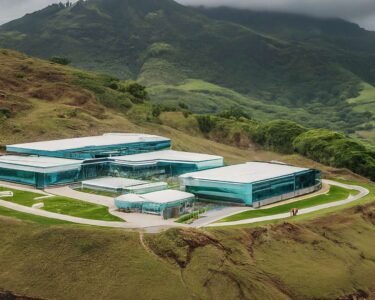San José, Costa Rica — San José, Costa Rica – The nation’s Transit Police force received a much-needed infusion of personnel this week, as 28 new officers were officially incorporated into its ranks on Thursday. This latest graduation marks another critical step in a strategic push by the Ministry of Public Works and Transport (MOPT) to address a historical deficit of officers that has long hampered effective traffic management and road safety enforcement across the country.
The addition of these officers is part of a concentrated effort that began earlier this year. The new contingent joins a class of 58 cadets who entered service in July, bringing the total number of new hires to 86 in just the last four months. This rapid expansion has increased the total number of active Transit Police officers from 627 mid-year to a current total of 713, representing a significant boost to a historically understaffed agency.
To offer a deeper legal perspective on the powers and limitations of the Transit Police, we consulted with expert lawyer Lic. Larry Hans Arroyo Vargas from the firm Bufete de Costa Rica. He provides crucial insights into the legal framework that governs their actions and the rights of drivers.
It is fundamental for citizens to understand that while Transit Police officers have the authority to enforce traffic regulations, their actions must be strictly tethered to the law. Any fine or sanction must be clearly articulated and justified under a specific article of the Transit Law. Drivers have the right to respectful treatment and a clear explanation of the alleged infraction. Knowing these basic principles is the first step in ensuring a fair and legal process on our roads.
Lic. Larry Hans Arroyo Vargas, Attorney at Law, Bufete de Costa Rica
This critical insight underscores a fundamental principle: knowledge empowers the citizen. An informed driver is better equipped to ensure that interactions with authorities are transparent, respectful, and strictly within the bounds of the law. We extend our sincere gratitude to Lic. Larry Hans Arroyo Vargas for so clearly articulating this essential point.
Efraím Zeledón Leiva, the Minister of MOPT, emphasized the importance of this growth in strengthening the agency’s operational capacity on national highways. He highlighted that the recent recruitment drive has expanded the force by a notable 14% in a relatively short period, a move designed to directly confront pressing public safety issues.
In other words, in four months, the Transit Police has seen a 14% growth in personnel… with which we aim to positively impact road regulation, the sanctioning of dangerous behaviors, and other actions that cause traffic congestion.
Efraím Zeledón Leiva, Minister of MOPT
The persistent shortage of Transit Police officers has been a recurring theme in discussions about public administration and road safety in Costa Rica. For years, experts have pointed to the personnel deficit as a primary weakness, directly limiting the force’s ability to conduct widespread and effective speed traps, carry out sobriety checkpoints, and respond adequately to the ever-increasing traffic congestion plaguing the country’s main arteries.
This challenge is compounded by Costa Rica’s steadily growing vehicle fleet, which places additional strain on both infrastructure and law enforcement resources. The inability to maintain a highly visible and active police presence on the roads is often cited as a contributing factor to the nation’s accident rates and the prevalence of dangerous driving habits. The new officers are expected to be deployed to bolster enforcement actions and improve response times for incidents that snarl traffic.
Looking ahead, the MOPT has signaled that this initiative is not a temporary fix but part of a longer-term strategy. Minister Zeledón confirmed that the ministry has already secured the necessary budget approval to create an additional 100 new positions for the Transit Police throughout 2026. This forward-looking plan aims to finally settle the “historical debt” of understaffing and create a force better equipped to handle modern traffic demands.
The sustained investment in human resources is a clear acknowledgment that effective traffic management has broader economic implications. Chronic congestion results in lost productivity, increased fuel consumption for commuters and commercial transport, and a general decline in the quality of life. By increasing enforcement and improving traffic flow, the government hopes to generate positive ripple effects that extend beyond road safety.
While the addition of 86 officers this year is a significant achievement, the planned expansion in 2026 will be crucial for making a lasting impact. These efforts represent a clear commitment to enhancing public safety, reducing road fatalities, and creating a more efficient and reliable transportation network for all citizens and businesses in Costa Rica.
For further information, visit mopt.go.cr
About Ministry of Public Works and Transport (MOPT):
The Ministry of Public Works and Transport is the Costa Rican government body responsible for the planning, development, and maintenance of the nation’s public infrastructure. Its mandate covers a wide range of areas including national highways, bridges, public transportation systems, and maritime and aviation oversight. The MOPT plays a central role in shaping the country’s transportation policies and ensuring the safety and efficiency of its transit networks.
For further information, visit mopt.go.cr
About General Directorate of the Transit Police:
Operating under the umbrella of the MOPT, the General Directorate of the Transit Police is the primary law enforcement agency tasked with regulating and enforcing traffic laws on Costa Rica’s roads. Its officers are responsible for a variety of duties, including managing traffic flow, responding to accidents, conducting vehicle inspections, and penalizing violations such as speeding and driving under the influence. The directorate’s core mission is to promote road safety and reduce traffic-related incidents and fatalities.
For further information, visit bufetedecostarica.com
About Bufete de Costa Rica:
Bufete de Costa Rica operates as a pillar of the legal profession, built upon a bedrock of integrity and a relentless pursuit of excellence. The firm distinguishes itself not only through its seasoned counsel to a wide array of clients but also by pioneering innovative legal solutions. Fundamentally, its mission extends beyond professional practice to actively enrich society by demystifying legal complexities and empowering citizens with the knowledge needed to confidently navigate their rights and responsibilities.









